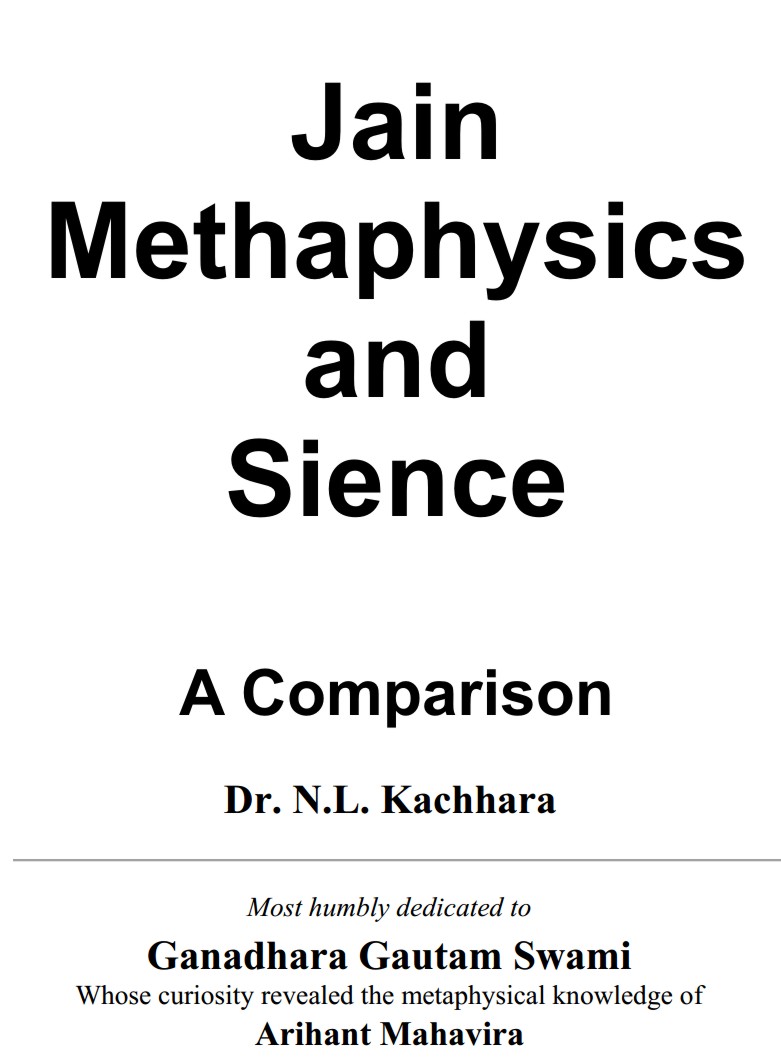(1) Mutation (parinami) - Non-mutation (aparinami)
The mutation attribute is linked to modification of a substance. The jiva and pudgala have mutation and the other four substances do not have mutation in respect of extrinsic modification. All substances have mutation with respect to intrinsic modification. All substances present in the universe maintain their separate identity and therefore do not have mutation in this respect.
(2) Conscious (jiva) - Inanimate (ajiva)
The living beings (jiva) have consciousness and all other substances are inanimate.
(3) Physical (murta) - Non physical / Intangible (amurta)
A thing that is perceived by senses is physical and that which is not perceived is nonphysical. Matter is physical because it has the qualities of touch, taste, smell and colour. Jiva and other four substances are non-physical. The quality of physical character and non-physical character in substances is natural is not imparted by any other agent. The fine form of matter is not perceived by senses but when the same matter assumes a gross form at some point in time it becomes sense perceptible. Mind can perceive both physical and non-physical things.
(4) Spatial (sapradesa) - Non- spatial (apradesa)
Dharma, adharma, akasa, Jiva and pudgal are spatial and kala (time) and paramanu are non-spatial.
(5) Solitary form (ek rupa) - Multiple form (aneka rupa)
Dharma, aharma and akasa are solitary and they cannot be divided in parts. Worldly jiva, pudgala and kala have multiple forms.
(6) Space (ksetra) - Non-space (aksetra)
The universe has space attribute. Jiva pudgala, dharma, adharma do not have space attribute and do not provide accommodation to other substance.
(7) Active (kriya) - Passive (akriya)
Jiva and pudgala are active substances. Dharma, adharma, akasa and kala are passive substances.
(8) Permanent (nitya) - Impermanent / Transient (anitya)
Dharma, adharma, akasa and absolute kala are permanent and eternal. From this consideration the universe is also eternal. Jiva and pudgala are transitory from the consideration of extrinsic modification and are permanent and eternal with respect to substance hood. Thus they are transient - permanent.
(9) Cause (karan) - Causeless (akarana)
Pudgala, dharma, adharma and kala are cause because they are helpful to jiva. The universe also belongs to this category. Jiva is causeless because being conscious and intangible it can not be a cause for worldly existence.
(10) Doer - (karta) - Non doer (akarta)
Jiva is doer and so he is also enjoyer. He enjoys the fruits of his own actions. Jiva is not doer for other beings and tangible substances. Dharma adharma, akasa kala and pudgala are non doer.
(11) Omnipresent (sarvagata) - local (asarvagata)
Akasa is omnipresent and other substances are local. An omniscient is omnipresent in respect of knowledge but he is not so from the consideration of substance.
(12) Admission (pravesh) - No - admission (apravesh)
No substance gets admission into any other substance. But since they have mixed presence in the space the universe can be said to admit all other substances.
 Dr. N.L. Kachhara
Dr. N.L. Kachhara
